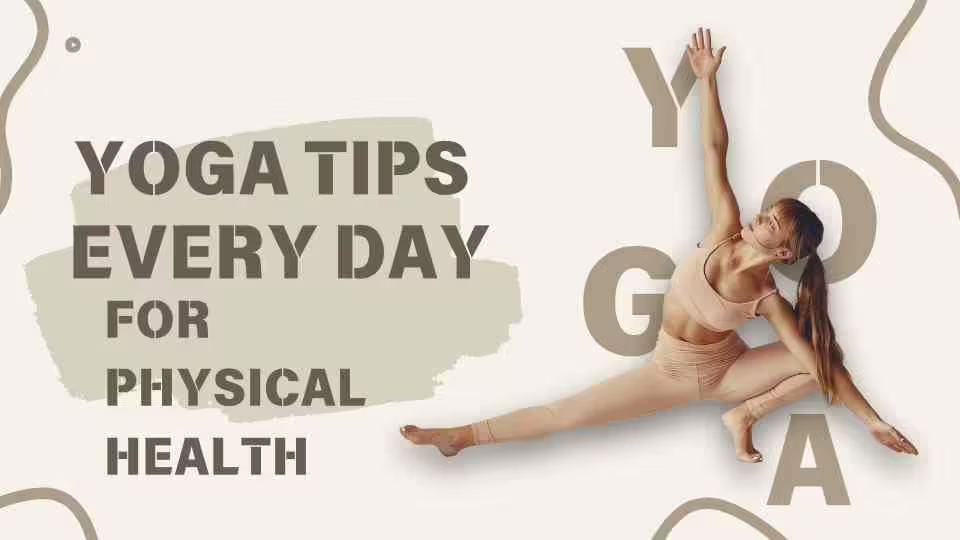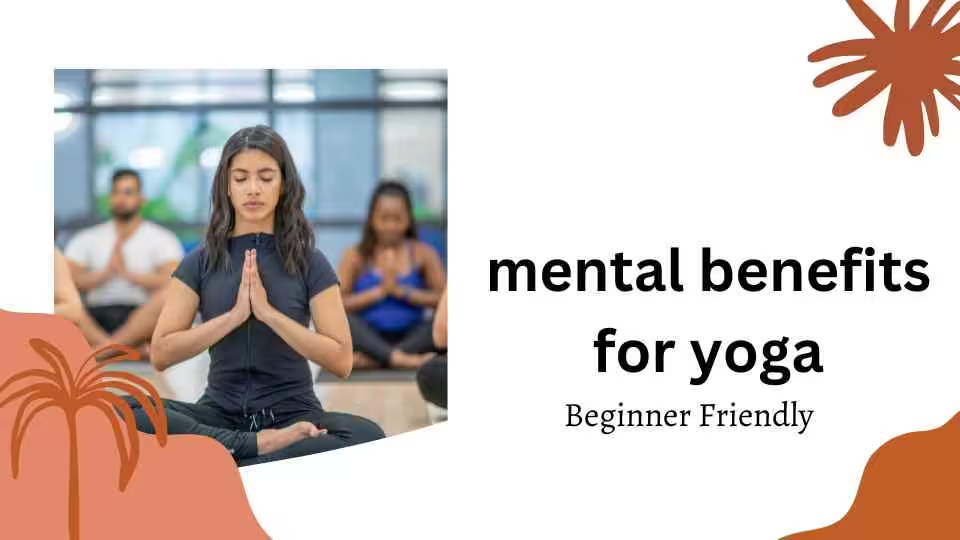1. Knowing What Yoga Is All About: An Easy Introduction
What is Yoga?
Yoga, which was originated from ancient India over 5,000 years ago, goes beyond being a mere physical exercise. The term “yoga” comes from Sanskrit word “yuj” meaning to unite. It aims at unifying the mind, body and spirit by using diverse physical poses, breathing exercises and meditations.
Various kinds of yoga that one can be engaged in are as follows:
• Hatha Yoga: It’s a mild introduction to the basic yoga postures. Best for beginners.
• Vinyasa Yoga: This style combines breath and movement. It’s usually more fast-paced and dynamic.
• Restorative Yoga: This type mainly focusses on relaxation and recovery with gentle stretching and use of props
Yoga’s philosophy encourages a balance-based approach to life with an emphasis on physical well-being, mental clarity, emotional stability.
Table of Contents
The Importance of Mind-Body Connection
Among the things about yoga that make it so profound is its ability to increase one’s bodily awareness. With practice you will start noticing areas that feel tight or sore making it easier to listen to your body’s needs. Breath is key here; learning how to breathe deeply and consciously enhances not only your physical practice but also eases your mind leading to mental well-being.
Getting Started in Your Yoga Journey
Starting on your journey into the world of yoga can seem overwhelming but it doesn’t have to be! Here are some guidelines to get you going:
• Choosing the Right Class Starting out on your journey into yoga can be intimidating but it doesn’t have to be scary either; here are some tips: Look for beginner classes offered at local studios or online; simply find a style that speaks to you.
• Selecting Appropriate Gear: You don’t need fancy equipment—just a yoga mat and some comfy clothes will suffice.
• Setting Personal Goals: Think about your intentions with yoga – is it stress relief, better flexibility or just community? Making up your mind can support you in improving your practice.

2. Physical Benefits of Yoga
Increasing Flexibility
Yoga undoubtedly enhances flexibility. Practicing its poses regularly helps to release tight muscles and broaden your range of motion. Even novice yogis can improve their flexibility through simple poses such as Downward Dog and Child’s Pose. Remember, consistency is key.
Developing Strength
Many people may not realize that yoga can also help build strength. A variety of positions engage major muscle groups such as the core, arms, and legs, which adds to overall body strength. Dynamic strength (as in Vinyasa) and static strength (holding a posture), thus trying out different styles really gives an all-rounded workout. Breaking down the warrior II or plank postures are great for beginners to strengthen their muscles.
Improving Posture and Alignment
Yoga can be one way to help correct poor postural habits that have stored over years of misalignment including rounding shoulders and back spasms among others. Yoga will make you more aware of your body hence maintaining good posture while engaging in everyday activities becomes easier Beginner-friendly poses like Mountain Pose or Cat-Cow can correct alignment issues and spinal health in general.
3. Mental Benefits of Yoga
Reduction of Pressure and Fear
Yoga is popular for stress relief and anxiety reduction. This can be achieved by combining physical exercise with being mindful. Savasana (corpse pose) brings about deep relaxation while breathing exercises like Nadi Shodhana (alternate nostril breathing) can help to settle the mind.
Improving focus and attention
Concentration skills are improved in yoga due to mindfulness activities which are commonly incorporated into it. While learning to concentrate on your breath as well as movements, you train your mind to be more present and less distracted during such moments. As a student, regular practice might help you focus more in class or when doing your usual duties.
Enhancing Emotional Stability
Emotional wellness can be greatly influenced by yoga. Movement affects mood therefore adopting different poses and styles helps one achieve emotional balance. Also, through meditation and contemplation one can understand himself or herself better.

4. Social Benefits of Yoga
Building a Sense of Community
Firstly, the social aspect attracts many beginners to yoga; community building group sessions create a supportive environment… In addition, many yoga studios foster an inclusive atmosphere where you are able to meet other like-minded individuals with ease.
Encouraging Teamwork and Collaboration
Teamwork is promoted through yoga programs that often involve partner poses or group activities… Sharing experiences with fellow practitioners could enhance your career growth prospects thus keeping up motivation levels.
Learning from Instructors and Peers
Beginner students would benefit from expert guidance given by seasoned teachers. Moreover, feedback given by classmates enhances the learning experience because it advances personal development through sharing ideas. Class discussions about what they know about yoga will deepen your understanding of both the subject matter itself and yourself.
5. Holistic and Spiritual Benefits of Yoga
Encouraging Self-Discovery
This makes yoga extremely useful for self-improvement. It also encourages self-reflection allowing them to investigate their internal thoughts and feelings. Being part of a workshop can help with this process and give you a deeper understanding.
Exploring Mindfulness and Presence
Yoga helps you to live in the present. By exercising mindfulness, you will have created peace within yourself. Outside of your yoga practice, there are activities such as morning stretches or mindful breathing that can help to increase your presence.
Connection to Spirituality
Though not everyone comes into yoga with spirituality in mind, those who do gain greatly from its spiritual aspects. Realizing the many dimensions of spirituality in yoga may assist you in developing your own spiritual path. This exploration deepens your experience.
Conclusion
Yoga has numerous physical, psychological, social and spiritual benefits, So, remember that it’s about progress not perfection on this journey. Celebrate small milestones listen to your body and cherish every second. In summary, regular yoga practice can become an amazing routine improving everything about you holistically.
FAQs
What should I wear to a yoga class?
It is important that you dress appropriately so that you have comfortable clothes which stretch easily as well. Loose clothing that might get in the way during your movement should also be avoided.
How often should beginners practice yoga?
At first two to three times per week would be perfect! Initially, being consistent is better than frequency itself.
Can I practice yoga at home without a class?
Certainly! There are different online sources that provide guidance on what exercises one can do at home. However, ensure that these practices are safe to avoid getting hurt when doing them.
Can’t I start yoga if I am not flexible?
No need to worry! Yoga is all-inclusive notwithstanding your flexibility levels, so you can begin with simple postures and then advance as per your pace.
Is there any danger in practicing yoga for beginners?
Like any other exercise, there’s exposure to dangers especially if you force yourself too much or miss the correct alignment. In case of any health concerns always listen to your body and seek professional advice.

